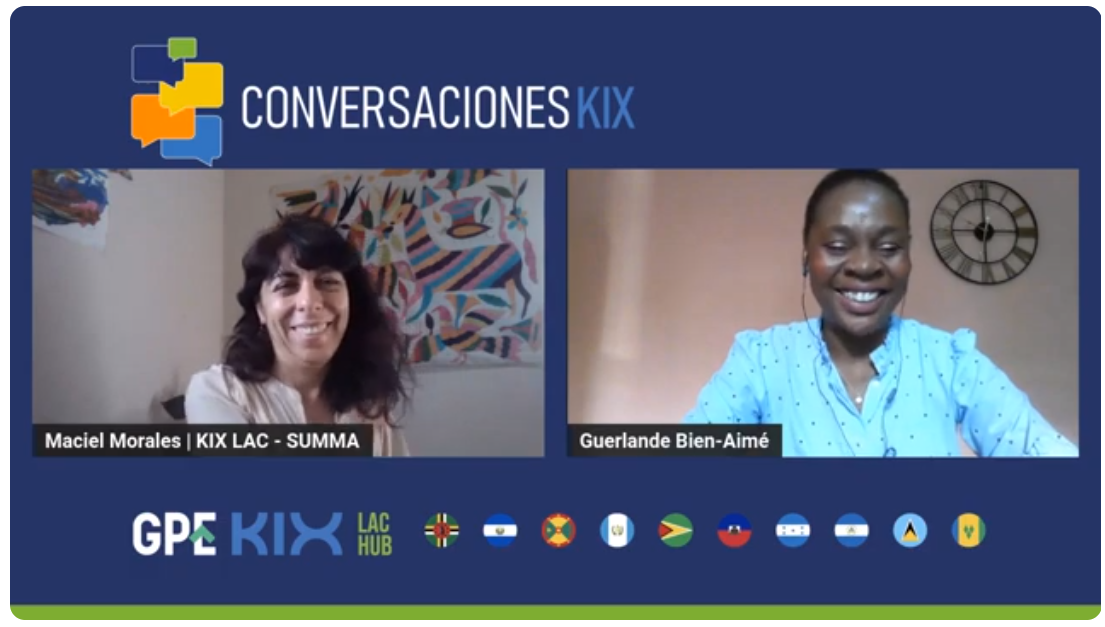
Video KIX Conversations Haiti (subtitles available in English and Spanish)
The sixteenth edition of the KIX Conversations featured the participation of Dr. Guerlande BIEN-AIMÉ, coordinator of the Training pillar for InnovEd-Uniq. and representative for Haiti at the KIX LAC Hub, who spoke about the country's educational context and the current state of research and the use of evidence. The interview was conducted by KIX LAC researcher, Maciel Morales Aceitón.
The conversation began with a detailed overview of the Haitian educational system’s current situation after the multiple climatic, health and social emergencies that have affected the country in recent years, highlighting the need to work on the recovery of learning, pedagogical continuity and in the socio-emotional dimension of both students and teachers.
Within this context, Dr. Bien-Aimé shared the research work she has been developing on bilingualism in Haiti, emphasizing the dichotomy that exists between the French language and Creole, and the social representation that both languages have. On the other hand, she spoke about a study that she is carrying out together with other researchers regarding the schooling of Haitian migrant girls and boys in Chile, highlighting the need to generate data around this recent topic.
Finally, Dr. Bien-Aimé spoke about future research challenges and the use of educational evidence both for Haiti and for other countries in the region, providing some reflections and strategies that could be useful to generate this culture, among them:
- Strengthen collaborative work between various actors and educational institutions,
- Raise awareness among researchers, academic institutions and decision makers about the need to formulate and use evidence for the formulation of educational policies relevant to the reality of each of the territories.
- Generate accessible data adapted to the needs of the community.
- Socialize research results with accessible and multilingual language.
- Generate spaces for dialogue that bring together various actors in the educational system, where the results of the studies are disseminated.
